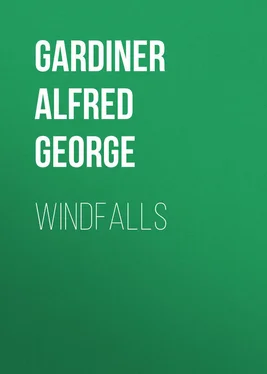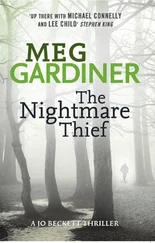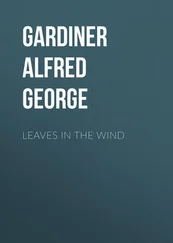Alfred Gardiner - Windfalls
Здесь есть возможность читать онлайн «Alfred Gardiner - Windfalls» — ознакомительный отрывок электронной книги совершенно бесплатно, а после прочтения отрывка купить полную версию. В некоторых случаях можно слушать аудио, скачать через торрент в формате fb2 и присутствует краткое содержание. Жанр: foreign_antique, foreign_prose, на английском языке. Описание произведения, (предисловие) а так же отзывы посетителей доступны на портале библиотеки ЛибКат.
- Название:Windfalls
- Автор:
- Жанр:
- Год:неизвестен
- ISBN:нет данных
- Рейтинг книги:3 / 5. Голосов: 1
-
Избранное:Добавить в избранное
- Отзывы:
-
Ваша оценка:
- 60
- 1
- 2
- 3
- 4
- 5
Windfalls: краткое содержание, описание и аннотация
Предлагаем к чтению аннотацию, описание, краткое содержание или предисловие (зависит от того, что написал сам автор книги «Windfalls»). Если вы не нашли необходимую информацию о книге — напишите в комментариях, мы постараемся отыскать её.
Windfalls — читать онлайн ознакомительный отрывок
Ниже представлен текст книги, разбитый по страницам. Система сохранения места последней прочитанной страницы, позволяет с удобством читать онлайн бесплатно книгу «Windfalls», без необходимости каждый раз заново искать на чём Вы остановились. Поставьте закладку, и сможете в любой момент перейти на страницу, на которой закончили чтение.
Интервал:
Закладка:
A. G. Gardiner
Windfalls
PREFACE
In offering a third basket of windfalls from a modest orchard, it is hoped that the fruit will not be found to have deteriorated. If that is the case, I shall hold myself free to take another look under the trees at my leisure. But I fancy the three baskets will complete the garnering. The old orchard from which the fruit has been so largely gathered is passing from me, and the new orchard to which I go has not yet matured. Perhaps in the course of years it will furnish material for a collection of autumn leaves.
JEMIMA
I took a garden fork just now and went out to dig up the artichokes. When Jemima saw me crossing the orchard with a fork he called a committee meeting, or rather a general assembly, and after some joyous discussion it was decided nem. con . that the thing was worth looking into. Forthwith, the whole family of Indian runners lined up in single file, and led by Jemima followed faithfully in my track towards the artichoke bed, with a gabble of merry noises. Jemima was first into the breach. He always is…
But before I proceed it is necessary to explain. You will have observed that I have twice referred to Jemima in the masculine gender. Doubtless, you said, “How careless of the printer. Once might be forgiven; but twice – ” Dear madam’ (or sir), the printer is on this occasion blameless. It seems incredible, but it’s so. The truth is that Jemima was the victim of an accident at the christening ceremony. He was one of a brood who, as they came like little balls of yellow fluff out of the shell, received names of appropriate ambiguity – all except Jemima. There were Lob and Lop, Two Spot and Waddles, Puddle-duck and Why?, Greedy and Baby, and so on. Every name as safe as the bank, equal to all contingencies – except Jemima. What reckless impulse led us to call him Jemima I forget. But regardless of his name, he grew up into a handsome drake – a proud and gaudy fellow, who doesn’t care twopence what you call him so long as you call him to the Diet of Worms.
And here he is, surrounded by his household, who, as they gabble, gobble, and crowd in on me so that I have to scare them off in order to drive in the fork. Jemima keeps his eye on the fork as a good batsman keeps his eye on the ball. The flash of a fork appeals to him like the sound of a trumpet to the warhorse. He will lead his battalion through fire and water in pursuit of it. He knows that a fork has some mystical connection with worms, and doubtless regards it as a beneficent deity. The others are content to grub in the new-turned soil, but he, with his larger reasoning power, knows that the fork produces the worms and that the way to get the fattest worms is to hang on to the fork. From the way he watches it I rather fancy he thinks the worms come out of the fork. Look at him now. He cocks his unwinking eye up at the retreating fork, expecting to see large, squirming worms dropping from it, and Greedy nips in under his nose and gobbles a waggling beauty. My excellent friend, I say, addressing Jemima, you know both too much and too little. If you had known a little more you would have had that worm; if you had known a little less you would have had that worm. Let me commend to you the words of the poet:
A little learning is a dangerous thing:
Drink deep, or taste not the Pierian spring.
I’ve known many people like you, who miss the worm because they know too much but don’t know enough. Now Greedy —
But clear off all of you. What ho! there… The scales!.. Here is a bumper root… Jemima realises that something unusual has happened, assembles the family, and discusses the mystery with great animation. It is this interest in affairs that makes the Indian runners such agreeable companions. You can never be lonely with a family of Indian runners about. Unlike the poor solitary hens who go grubbing about the orchard without an idea in their silly heads, these creatures live in a perpetual gossip. The world is full of such a number of things that they hardly ever leave off talking, and though they all talk together they are so amiable about it that it makes you feel cheerful to hear them… But here are the scales… Five pound three ounces… Now what do you say to that, Jemima? Let us turn to and see if we can beat it.
The idea is taken up with acclamation, and as I resume digging I am enveloped once more by the mob of ducks, Jemima still running dreadful risks in his attachment to the fork. He is a nuisance, but it would be ungracious to complain, for his days are numbered. You don’t know it, I said, but you are feasting to-day in order that others may feast tomorrow. You devour the worm, and a larger and more cunning animal will devour you. He cocks up his head and fixes me with that beady eye that gleams with such artless yet searching intelligence… You are right, Jemima. That, as you observe, is only half the tale. You eat the worm, and the large, cunning animal eats you, but – yes, Jemima, the crude fact has to be faced that the worm takes up the tale again where Man the Mighty leaves off:
His heart is builded
For pride, for potency, infinity,
All heights, all deeps, and all immensities,
Arrased with purple like the house of kings,
To stall the grey-rat, and the carrion-worm
Statelily lodge…
I accept your reminder, Jemima. I remember with humility that I, like you, am only a link in the chain of the Great Mother of Mysteries, who creates to devour and devours to create. I thank you, Jemima. And driving in the fork and turning up the soil I seized a large fat worm. I present you with this, Jemima, I said, as a mark of my esteem…
ON BEING IDLE
I have long laboured under a dark suspicion that I am an idle person. It is an entirely private suspicion. If I chance to mention it in conversation, I do not expect to be believed. I announce that I am idle, in fact, to prevent the idea spreading that I am idle. The art of defence is attack. I defend myself by attacking myself, and claim a verdict of not guilty by the candour of my confession of guilt. I disarm you by laying down my arms. “Ah, ah,” I expect you to say. “Ah, ah, you an idle person. Well, that is good.” And if you do not say it I at least give myself the pleasure of believing that you think it.
This is not, I imagine, an uncommon artifice. Most of us say things about ourselves that we should not like to hear other people say about us. We say them in order that they may not be believed. In the same way some people find satisfaction in foretelling the probability of their early decease. They like to have the assurance that that event is as remote as it is undesirable. They enjoy the luxury of anticipating the sorrow it will inflict on others. We all like to feel we shall be missed. We all like to share the pathos of our own obsequies. I remember a nice old gentleman whose favourite topic was “When I am gone.” One day he was telling his young grandson, as the child sat on his knee, what would happen when he was gone, and the young grandson looked up cheerfully and said, “When you are gone, grandfather, shall I be at the funeral?” It was a devastating question, and it was observed that afterwards the old gentleman never discussed his latter end with his formidable grandchild. He made it too painfully literal.
And if, after an assurance from me of my congenital idleness, you were to express regret at so unfortunate an affliction I should feel as sad as the old gentleman. I should feel that you were lacking in tact, and I daresay I should take care not to lay myself open again to such gaucherie . But in these articles I am happily free from this niggling self-deception. I can speak the plain truth about “Alpha of the Plough” without asking for any consideration for his feelings. I do not care how he suffers. And I say with confidence that he is an idle person. I was never more satisfied of the fact than at this moment. For hours he has been engaged in the agreeable task of dodging his duty to The Star .
Читать дальшеИнтервал:
Закладка:
Похожие книги на «Windfalls»
Представляем Вашему вниманию похожие книги на «Windfalls» списком для выбора. Мы отобрали схожую по названию и смыслу литературу в надежде предоставить читателям больше вариантов отыскать новые, интересные, ещё непрочитанные произведения.
Обсуждение, отзывы о книге «Windfalls» и просто собственные мнения читателей. Оставьте ваши комментарии, напишите, что Вы думаете о произведении, его смысле или главных героях. Укажите что конкретно понравилось, а что нет, и почему Вы так считаете.












